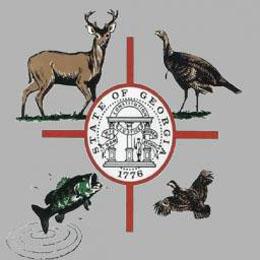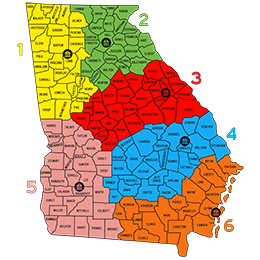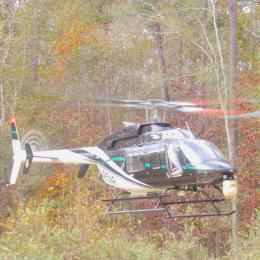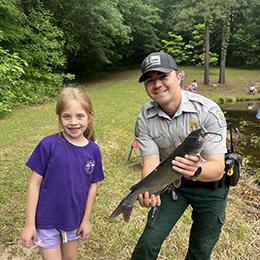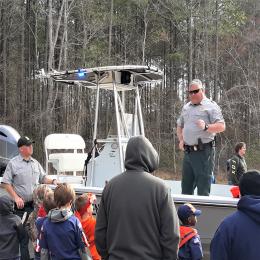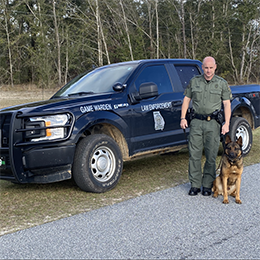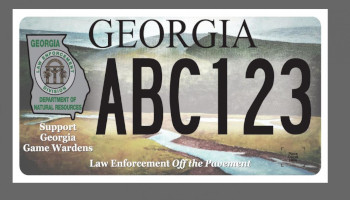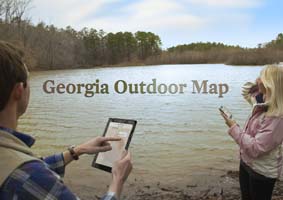Falconry is defined as the taking of wild quarry in its natural state and habitat by means of a trained raptor. The sport has a long history, some suggest as early as 2000 B.C. For more on the history of falconry, click here.
TO LEARN MORE ABOUT FALCONRY
- Hunt & Learn Series/Charlie Elliott Wildlife Center: Falconry
- Georgia Falconry Association: This is a group of individuals dedicated to preserving the art and practice of falconry.
- Georgia Game Hawkers Club: Dedicated to falconry and fellowship, GGHC serves to disseminate knowledge that leads to greater skills in the field.
FALCONRY GUIDE AND PERMITS
According to O.C.G.A. ~ 27-2-17, it is unlawful for any person to trap, take, transport, or possess raptors for falconry purposes unless the person first procures, in addition to a valid hunting license, a valid falconry permit as provided in O.C.G.A. ~ 27-2-23.
There are three classes of falconry permits: apprentice, general and master. Prior to the issuance of any falconry permit, applicants are required to successfully complete an exam (administered by the department) relating to the basic biology, care and handling of raptors, literature on raptors, and laws and regulations pertaining to raptors.
In order to become a Falconer, you must score a minimum of 84 points on a Falconry exam consisting of 105 questions. The exam may be taken at the DNR Law Enforcement Division Headquarters - Special Permit Unit with a previous appointment. Please call 770-918-6408.
If you live some distance from Social Circle, it is possible to arrange to take the exam at one of our Region Game Management offices - see link for locations - https://georgiawildlife.com/about/contact
- Georgia Rules and Regulations
- Falconry State Permit Application with Study Guide, for new applicants only.
- Falconry RENEWAL Application
- US Fish & Wildlife Form 3-186A
- Requirements for Falconry Upgrades
- Send an email request for upgrade to jamie.hawkins@dnr.ga.gov
- Along with a list of your bird(s) and date(s)
- A recommendation email from your sponsor (if applicable) must be received
- Falconry Upgrade Request Form
BECOMING A LICENSED FALCONER IN GEORGIA
The Georgia Department of Natural Resources provides the following information on the process for obtaining a permit:
- Pass the exam: You must pass the Georgia Falconry Exam, which covers basic raptor biology, care, and handling. An 84% score or higher is required.
- Secure a sponsor: An apprentice must be sponsored by a General or Master falconer.
- Build facilities and acquire equipment: You must build or acquire approved facilities for housing a raptor, such as a mews, and the necessary equipment.
- Submit a falconry application by mail or email to Jamie.hawkins@dnr.ga.gov and supporting documents to start the inspection process. The inspection process can take up to thirty (30) days.
- Inspection and permits: Your facilities and equipment must be inspected and approved by the Georgia DNR before a permit is issued
PASSAGE PEREGRINE FALCON PERMITS
Dates to Remember:
- Application Period: June 1st to July 31st, 2025.
- Lottery Drawing: August 1st, 2025.
Eligibility:
- You are a Master or a General with at least 5 years of experience.
- If you have purchased any type of DNR (Department of Natural Resources) license in the past, you already have an account in Go OutdoorsGeorgia.
Application Process:
- Step 1: Log into your Go OutdoorsGeorgia account.
- Step 2: Submit your application for the Peregrine Falcon season within the designated timeframe (June 2nd – July 31st). You will be asked to Log In. This is done by entering your date of birth, your last name and the last 4 digits of your social security number, Click Quota Hunts again
- Step 3: Look for Falcon under the list of quota hunts and click Apply
- Step 4: Complete the application
- Step 5: The lottery for the season will run on August 1st, and applicants will be notified of their selection or status.
If you do not see the option of Falcon on the list of available quota hunts please call the Special Permit Unit at 770-918-6408 and ask for Jamie Hawkins or Lt. Lynn (Bubba) Stanford.
Falco peregrinus was federally delisted in 1999 and the U.S. Fish and Wildlife Service allowed for the limited take of nestling peregrines in the western U.S. beginning in 2001. More recently, the Fish and Wildlife Service along with the Atlantic, Mississippi and Central Flyway councils approved the limited take of “passage” peregrines in the eastern U.S. These falcons are first-year northern, or Arctic, peregrines that breed in northern Canada and Alaska and southern Greenland, migrate along the eastern coast during the fall, and winter in Central and South America. The northern population is much larger than the less migratory eastern population found in the eastern U.S.
“Biologically, there’s no reason we can’t do this,” said Jim Ozier, a Wildlife Conservation Section program manager with the Department of Natural Resources’ Wildlife Resources Division. “Falconers are a legitimate, passionate and responsible user group, just as are those who hunt and fish.”
The peregrine remains state-listed as rare in Georgia, primarily to draw attention to the very few pairs that nest here. The combination of allowing trapping during a brief time in the fall and restricting trapping to the coast is designed to avoid capture of resident peregrines that belong to the eastern population, helping ensure the capture only of northern migrant birds en route to South America.
MORE ABOUT PEREGRINE FALCONS
In the U.S., peregrine falcons were listed under the Endangered Species Conservation Act in 1970 after populations hit a DDT-induced low. But peregrines recovered, thanks in part to falconers, who contributed expertise and captive-reared birds.
Peregrine falcons are considered the world’s fastest bird, with dives clocked at more than 200 mph. Falconers prize peregrines for their spectacular hunting skills.
There are three recognized subspecies of peregrine falcons in North America: the Arctic peregrine, which nests in Alaska, northern Canada and Greenland and migrates south to Central and South America; the American peregrine, which nests in parts of southern Canada, Alaska and the U.S., some of which migrate south; and the non-migratory Peale's peregrine, which resides on the Pacific coast from Alaska to Oregon.







